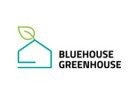Bluehouse Greenhouse is going to build a 62-acre greenhouse production facility in Lancaster. "The BHGH facility will use a closed-loop sustainable ecosystem design to create the optimal environment for plant life, increasing quality, production, and consistency," Lancaster Mayor R. Rex Parris said.
“Our greenhouses will combine traditional agriculture practices with advanced technologies to grow the best tasting, highest quality produce,” said Ari Kashani, Founder of BHGH. "Our controlled greenhouses will produce 3,000% more yield per acre than a traditional farm, will use 90% less water, require 90% less human handling, and will be free from any herbicides.”
As an example of the sustainability of greenhouse farming, a standard head of lettuce grown in the field consumes about 28 gallons of water from seed to harvest. In a greenhouse, the consumption drops to less than 2 gallons. The 62-acre BHGH Flagship facility will produce over 50 million pounds of fresh fruits and vegetables annually to be distributed to local and regional markets.
Today, over 60% of vine crops consumed in the United States are imported from other countries. “There's an increasing need to replace imports with domestically grown produce,” said Kashani. California is one of the largest agricultural states in the country but increasingly faces climate and water challenges. “For agriculture to remain a dominant industry, farming practices must leverage today's technological advances. With the future of field farming becoming ever more uncertain, greenhouse agriculture is becoming more of a necessity,” said Kashani.
Antelope Valley Engineering, a local design and engineering firm with deep roots in the Antelope Valley, is leading the master planning and engineering effort for this intricate agro-park development. The facility is slated to break ground in Winter 2021/2022 and plans to be in production with fruits and vegetables on the market in late Winter 2022.

For more information:
Bluehouse Greenhouse
www.bluehousegreenhouse.com

City of Lancaster
www.cityoflancasterca.org
